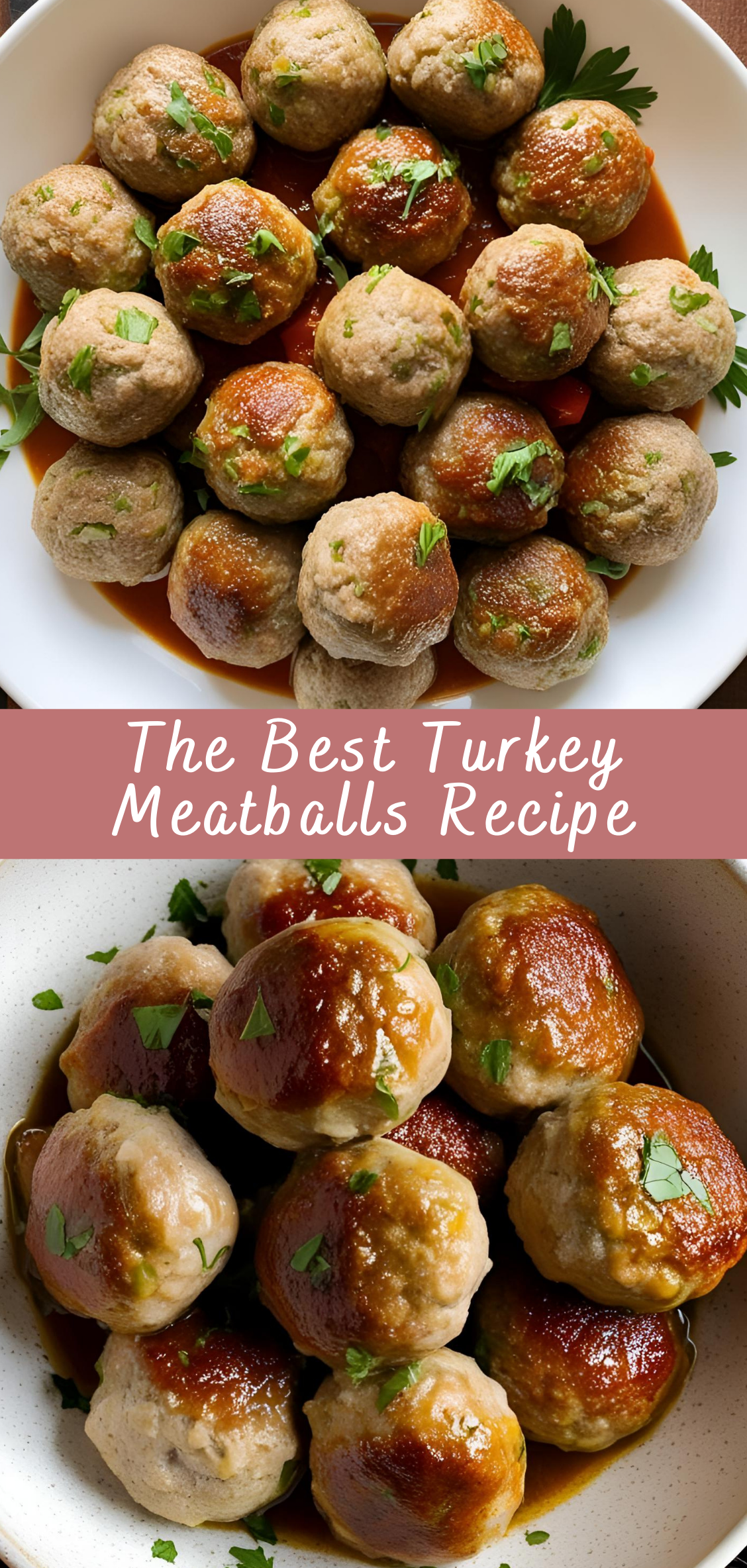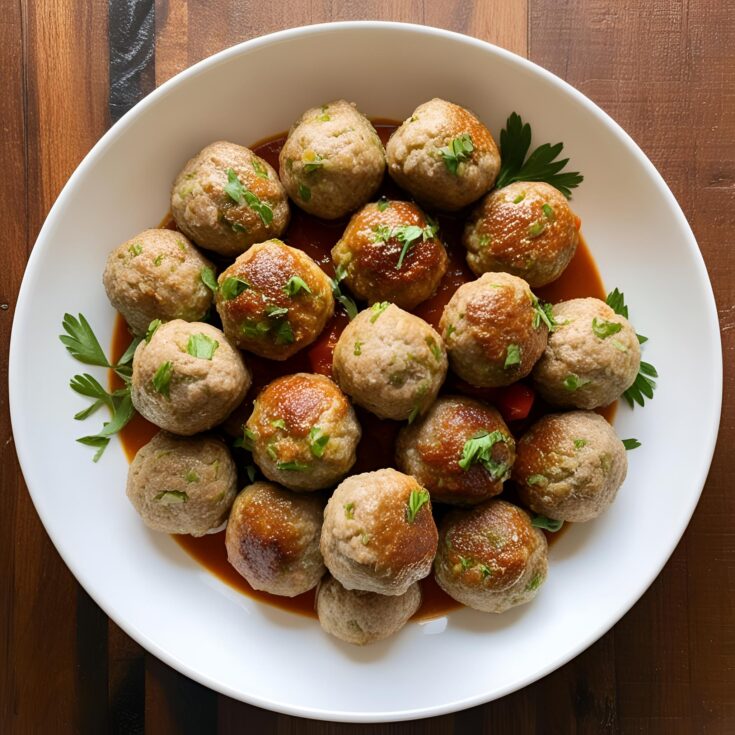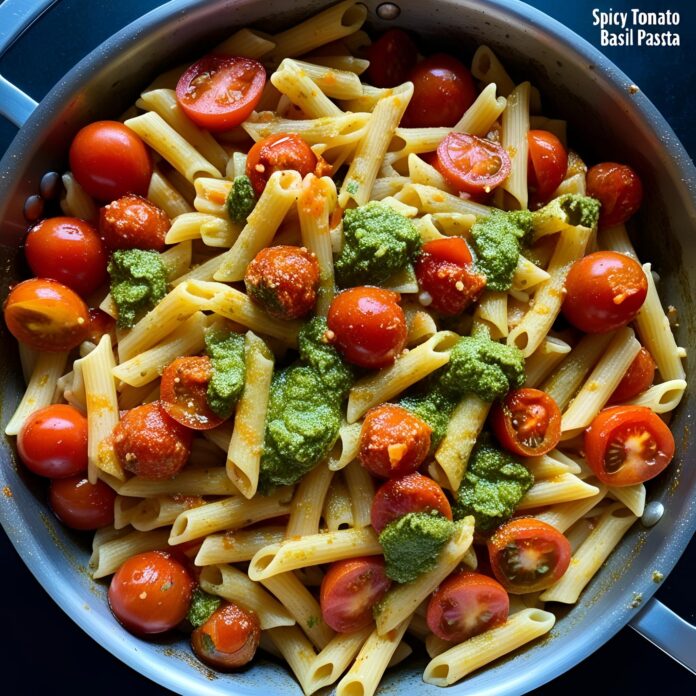The Best Turkey Meatballs Recipe
Meatballs are a universally loved dish that can be enjoyed in various forms across different cuisines. Whether served with pasta, stuffed in a sandwich, or eaten as an appetizer, they have a way of bringing comfort and satisfaction to the table. Traditionally, meatballs are made with beef but turkey meatballs offer a healthier alternative without compromising on flavor. Turkey is leaner than beef and pork, making it an excellent choice for those seeking to reduce their fat intake while still enjoying the hearty goodness of a meatball.

Why Turkey Meatballs?
Turkey meatballs are an excellent option for anyone looking to enjoy a delicious and healthier alternative to the classic beef or pork meatballs. Here’s why you should consider turkey meatballs:
a. Lower Fat Content
Ground turkey, especially lean turkey breast, is a lower-fat alternative to beef or pork. It provides a great source of protein without the high levels of saturated fat often found in traditional meatball recipes. This makes turkey meatballs a healthier option for those looking to maintain a balanced diet.
b. High Protein, Low-Calorie
Turkey is a fantastic source of protein, which is essential for muscle repair, growth, and overall body function. It’s also relatively low in calories compared to red meat, which is beneficial for those aiming to lose weight or maintain a healthy body composition.
c. Versatile and Flavorful
Turkey meatballs have a neutral flavor that absorbs spices and seasonings well, making them highly versatile. You can customize the flavor profile to suit your preferences by adding herbs, spices, and other ingredients, from Italian seasoning to ginger and garlic for a more exotic twist.
d. Great for Meal Prep
Turkey meatballs are easy to prepare in bulk, making them perfect for meal prep. They can be refrigerated or frozen and reheated for quick, healthy meals throughout the week.
Ingredients for the Best Turkey Meatballs
The key to making great turkey meatballs is selecting fresh, high-quality ingredients and balancing them for the perfect texture and flavor. Here’s what you’ll need:
Main Ingredients:
- Ground Turkey: Choose lean ground turkey (preferably 93% lean or higher) for a healthier option. You can also mix ground dark and light turkey to achieve a slightly richer flavor.
- Breadcrumbs: Breadcrumbs are essential for binding the meatballs together and giving them a tender texture. Use plain or Italian-style breadcrumbs, or opt for whole-wheat breadcrumbs for added fiber.
- Egg: The egg acts as a binder, helping to hold the meatballs together and providing moisture.
- Parmesan Cheese: Freshly grated Parmesan cheese adds a savory umami flavor and helps keep the meatballs moist.
- Milk: A small amount of milk adds moisture to the meatballs, helping to keep them tender.
- Garlic and Onion: Freshly minced garlic and onion are essential for enhancing the flavor of the meatballs.
- Fresh Herbs: Fresh parsley and basil are great choices to infuse the meatballs with a herby, aromatic flavor.
- Seasonings: Salt, black pepper, and any other desired seasonings like Italian seasoning, red pepper flakes, or smoked paprika.
Optional Ingredients for Extra Flavor:
- Zest of Lemon: For a fresh, citrusy kick.
- Red Pepper Flakes: If you like a little heat in your meatballs.
- Worcestershire Sauce: Adds a depth of savory flavor to the meatballs.
- Mustard: A spoonful of Dijon or whole-grain mustard can bring out the richness of the turkey and add a tangy kick.
Health Benefits of Turkey Meatballs
Turkey is a lean source of protein, and when made into meatballs, it can be a nutritious and delicious meal option. Here’s why turkey meatballs are a healthy choice:
a. Rich in Protein
Turkey is an excellent source of protein, which is crucial for muscle development, immune function, and overall body health. Protein also promotes feelings of fullness, helping with weight management.
b. Low in Fat
Lean turkey breast contains far less fat than traditional beef or pork. By choosing ground turkey with minimal fat content, you reduce your intake of unhealthy saturated fats, which can negatively affect heart health.
c. Vitamins and Minerals
Turkey is rich in essential vitamins and minerals, including B vitamins (especially niacin, B6, and B12), zinc, and selenium. These nutrients are vital for energy production, immune support, and healthy cell function.
d. A Healthy Alternative for Weight Management
Turkey meatballs, when prepared with wholesome ingredients, are an excellent choice for anyone looking to maintain a healthy weight. By using lean turkey and whole-grain breadcrumbs, you can create a filling and satisfying meal that won’t add excessive calories.
Instructions:
-
Preheat the Oven: Preheat your oven to 375°F (190°C) and line a baking sheet with parchment paper or lightly grease it with cooking spray.
-
Prepare the Ingredients: In a large mixing bowl, combine the ground turkey, breadcrumbs, milk, Parmesan cheese, egg, garlic, onion, parsley, and basil (if using). Add the Italian seasoning, salt, and black pepper.
-
Mix the Meatball Mixture: Gently mix everything together with your hands or a spoon until just combined. Be careful not to overmix, as this can result in tough meatballs.
-
Shape the Meatballs: Using your hands, form the mixture into meatballs about 1.5 inches in diameter. You should be able to make around 16-18 meatballs, depending on the size.
-
Cooking Method (Oven-Baked): Arrange the meatballs on the prepared baking sheet, ensuring they are spaced evenly. Bake for 20-25 minutes, or until the meatballs are golden brown and cooked through (the internal temperature should reach 165°F or 74°C).
-
Cooking Method (Stovetop): If you prefer to cook the meatballs on the stovetop, heat a little olive oil in a large skillet over medium heat. Once hot, add the meatballs in batches, being careful not to overcrowd the pan. Cook for about 7-8 minutes, turning occasionally, until the meatballs are browned on all sides and cooked through.
-
Serve: Once the meatballs are cooked, remove them from the oven or skillet and let them rest for a few minutes before serving.
Cooking Methods: Oven-Baked vs. Stovetop
Both oven-baking and stovetop cooking yield great results for turkey meatballs, but they offer different advantages:
Oven-Baked Meatballs:
- Hands-off cooking: Once you place the meatballs in the oven, you don’t need to worry about them until they’re done. This is great for busy weeknights or meal prepping.
- Even cooking: Baking allows the meatballs to cook evenly, making it easier to achieve that perfect golden-brown exterior and moist interior.
- Less oil: Baking eliminates the need for excessive oil, making it a healthier option.
Stovetop Meatballs:
- Crispy exterior: Cooking meatballs on the stovetop allows them to develop a crispy, caramelized exterior, which some people prefer.
- Faster: Cooking meatballs on the stovetop can be faster, especially if you’re making a smaller batch.
Tips and Tricks for the Best Meatballs
- Don’t Overmix the Meat: Overworking the meatball mixture will result in dense, tough meatballs. Mix gently until combined, then form into meatballs.
- Use a Cookie Scoop: To ensure uniform-sized meatballs, use a cookie scoop. This will help them cook evenly and make the process quicker.
- Add Moisture: If your meatballs are too dry, add a little more milk or even an extra egg to achieve the desired consistency.
Flavor Variations and Customizations
Turkey meatballs are versatile and can easily be customized to suit your flavor preferences. Here are some ideas:
- Asian-Inspired Meatballs: Add grated ginger, soy sauce, and sesame oil for an Asian flair.
- Spicy Meatballs: Add red pepper flakes, jalapeños, or chili powder for a spicy kick.
- Mediterranean Meatballs: Incorporate feta cheese, olives, and oregano for a Mediterranean twist.
Serving Ideas for Turkey Meatballs
Turkey meatballs can be served in various ways, depending on your cravings:
- Classic Spaghetti and Meatballs: Serve your turkey meatballs over a plate of spaghetti with marinara sauce.
- Meatball Sandwiches: Place meatballs on a hoagie roll, add marinara sauce, and top with melted mozzarella cheese for a delicious sub.
- Meatball Appetizers: Serve turkey meatballs on toothpicks with a side of dipping sauce for a fun party snack.
- Meatballs with Rice or Quinoa: Pair your turkey meatballs with a side of rice or quinoa and a simple salad for a balanced meal.
How to Store and Reheat Turkey Meatballs
Turkey meatballs store well in the fridge or freezer:
- Refrigerate: Store cooked turkey meatballs in an airtight container in the refrigerator for up to 4 days.
- Freeze: Freeze turkey meatballs in a single layer on a baking sheet, then transfer to a freezer bag. They will keep for up to 3 months.
- Reheat: To reheat, simply bake in the oven at 350°F (175°C) for 10-15 minutes, or microwave for 1-2 minutes.
Conclusion
Turkey meatballs are a flavorful, healthy alternative to traditional meatballs, offering a lean source of protein and a variety of ways to customize and enjoy them. Whether you bake or fry them, turkey meatballs are perfect for any occasion, from a quick weeknight dinner to a special gathering. With the right ingredients and tips, you can create the best turkey meatballs every time, satisfying your cravings without compromising your health goals.
The Best Turkey Meatballs Recipe

Meatballs are a universally loved dish that can be enjoyed in various forms across different cuisines. Whether served with pasta, stuffed in a sandwich, or eaten as an appetizer, they have a way of bringing comfort and satisfaction to the table. Traditionally, meatballs are made with beef or pork, but turkey meatballs offer a healthier alternative without compromising on flavor. Turkey is leaner than beef and pork, making it an excellent choice for those seeking to reduce their fat intake while still enjoying the hearty goodness of a meatball.
Ingredients
- 1 lb ground turkey (preferably lean but not extra-lean for juiciness)
- ½ cup breadcrumbs (whole wheat or regular)
- ¼ cup grated Parmesan cheese
- 2 cloves garlic, minced
- 1 large egg
- ¼ cup milk (or almond milk for dairy-free)
- 2 tbsp fresh parsley, chopped (or 1 tbsp dried parsley)
- 1 tsp dried oregano
- 1 tsp dried basil
- ½ tsp salt (or to taste)
- ¼ tsp black pepper
- 1 tbsp olive oil (for cooking)
- Optional: 1 tsp red pepper flakes (for a spicy kick)
- Optional: Marinara sauce (for serving)
Instructions
- Preheat the oven: Set your oven to 375°F (190°C) and line a baking sheet with parchment paper or lightly grease it with cooking spray.
- Mix ingredients: In a large bowl, combine the ground turkey, breadcrumbs, Parmesan cheese, garlic, egg, milk, parsley, oregano, basil, salt, pepper, and red pepper flakes (if using). Gently mix everything together with your hands or a spoon until just combined. Be careful not to overmix, as it can make the meatballs tough.
- Form the meatballs: Using your hands, shape the mixture into about 24 meatballs, each about 1 to 1 ½ inches in diameter. Place the meatballs on the prepared baking sheet.
- Cook the meatballs: Heat 1 tablespoon of olive oil in a large skillet over medium heat. Once hot, add the meatballs in batches (don’t overcrowd the pan) and brown them on all sides, about 3-4 minutes per side. Once browned, transfer the meatballs to the prepared baking sheet.
- Bake: Transfer the baking sheet with the browned meatballs to the oven and bake for 12-15 minutes or until the meatballs are fully cooked through and reach an internal temperature of 165°F (74°C).
- Serve: You can serve the turkey meatballs as-is, or with marinara sauce on the side for dipping, or as a topping for pasta, in a sub sandwich, or over zucchini noodles.

